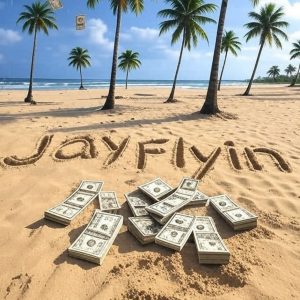
Stone Temple Pilots were able to turn alternative rock into stadium rock; naturally, they became the most critically despised band of their era. Accused by many critics of being nothing more than ripoff artists who pilfered from Pearl Jam, Soundgarden, and Alice in Chains, the bandmates nevertheless became major stars in 1993. And the influence of those bands was apparent in their music, although Stone Temple Pilots did manage to change things around a bit. STP were more concerned with tight song structure and riffs than punk rage. Their closest antecedents were not the Sex Pistols or Hüsker Dü; instead the band resembled arena rock acts from the ’70s — they made popular hard rock that sounded good on the radio and in concert. No matter what the critics said, Stone Temple Pilots had undeniably catchy riffs and production; there’s a reason why over three million people bought their debut album, Core, and why their second album, Purple, shot to number one when it was released.
Following the success of Purple and its accompanying tour, the band took some time off, during which the group’s lead singer, Scott Weiland, developed a heroin addiction. In the spring of 1995, he was arrested for possession of heroin and cocaine, and was sentenced to a rehabilitation program. Following his completion of the program, Stone Temple Pilots recorded their third album. Released in the spring of 1996, Tiny Music…Songs from the Vatican Gift Shop, entered the charts at number four. Shortly after its release, Stone Temple Pilots announced that Weiland had relapsed and entered a drug rehabilitation facility, thereby canceling the group’s plans for a summer tour. Weiland’s drug problems and the group’s inability to support Tiny Music with a tour meant that the album couldn’t replicate the success of its predecessors — by the end of the summer, it had fallen out of the Top 50 and stalled at platinum, which was considerably less than what the group’s two previous albums achieved.
Still battling his personal demons, Weiland recorded a 1998 solo album, 12 Bar Blues, while the remaining members of STP recruited vocalist Dave Coutts to record a self-titled LP under the band name Talk Show. To the surprise of many, Stone Temple Pilots then reunited, although shortly after completing 1999’s No. 4, Weiland was sentenced to a year in a Los Angeles county jail for violating his probation, which stemmed from an earlier conviction for heroin possession. Even so, a newly rejuvenated Stone Temple Pilots and a sober Weiland emerged stronger than ever during the new millennium. The band got back to basics with Shangri-La Dee Da, released in summer 2001. Two years later, STP issued the ambitious greatest-hits package Thank You. The audio-only edition featured 15 tracks — 13 hits spanning the group’s entire career, an acoustic version of “Plush” dating from 1992, and the new track “All in the Suit That You Wear” — while a special CD/DVD format included three hours of videos, live performances, and behind-the-scenes footage.
Stone Temple Pilots took another break between 2003 and 2008, during which time Weiland found renewed success as the frontman of Velvet Revolver. After clashes with his bandmates resulted in his exit from the group, Weiland reunited with STP and embarked on a successful reunion tour in 2008, with ticket sales reportedly totaling $230,000 per show. The band returned to the studio one year later, emerging in 2010 with the release of Stone Temple Pilots, its self-titled sixth album. It reached number two on the U.S. album charts, and the band embarked on a worldwide tour that wound up being documented on the 2011 live video Alive in the Windy City. STP were planning to continue a tour in 2012, possibly playing their Core debut in its entirety, but these plans fell apart, and on February 27, 2013 the group announced they had fired Weiland.
On the following day, the singer countered that this was all a ruse to boost ticket sales and that lawyers would straighten out the situation, but the remaining members of Stone Temple Pilots soldiered on without him, appearing as a surprise guest on KROQ’s annual Weenie Roast on May 18, 2013. Their new vocalist was Chester Bennington from Linkin Park; he not only performed with the band on May 18 and 19 (the latter was in San Francisco), but he sang lead on the group’s new single, “Out of Time,” which was available for download on May 19, 2013. Bennington toured with the band until 2015, when he returned to his efforts with Linkin Park. Later that year, on December 3, Weiland was found dead in Bloomington, Minnesota while on tour with his band the Wildabouts. Following Bennington’s departure, Stone Temple Pilots set out to find his replacement by holding auditions online. Before they could announce a new singer, Bennington committed suicide on July 20, 2017.
The band celebrated the 25th anniversary of Core via a Super Deluxe Edition released in September 2017. Shortly afterward, Stone Temple Pilots announced they hired Jeff Gutt — who previously had appeared in the U.S. version of the television musical competition The X Factor — as their new lead singer. The new STP lineup released an eponymous album in March 2018. ~ Stephen Thomas Erlewine











More StereoBuzz Music News
Rising Hip Hop Star JayFlyin Releases Debut Album The Jay Flys In
Kirz Shines with New Afrobeat-Reggae Fusion on Album International
The Goldy lockS Band Call Out Ego and Excess in Explosive New Single ‘Textbook’